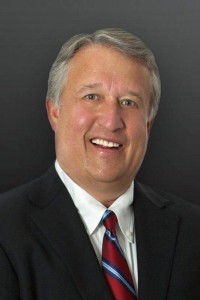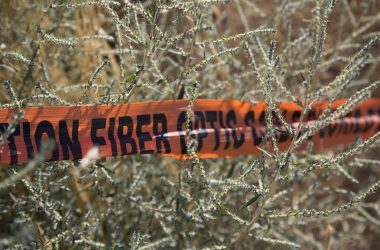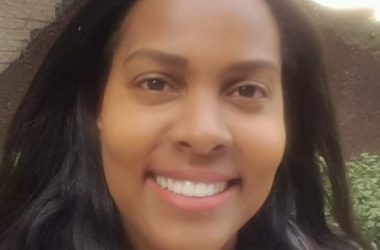BECKLEY, W.Va. — State Senate President-elect Bill Cole has one agenda for his term at the helm of the legislative body’s upper chamber. It’s a simple theory, really, but the path to the reality will not be easy.
“I want to keep our kids home,” Cole said in an interview with The Register-Herald. “That’s it.”
For the 58-year-old Mercer County businessman, keeping West Virginia kids in the Mountain State to become West Virginia adult taxpayers is the answer to every question.
More tax revenue but a lower overall tax rate? More working West Virginians.
A better education system that prepares students for work and college? More working West Virginians.
“If they’re here working, that means we’ve provided the opportunities to have jobs. And if we did that, then we’ve fixed the education system and made sure our kids had a proper education (and) they were ready to take those jobs.”
Cole is a fixer. A successful car dealership owner, the Eagle Scout, lifetime National Rifle Association member and pilot is also goal-oriented.
He’s already accomplished a big one. While Republicans were predicted to overcome a slight Democratic majority in the House of Delegates, no one predicted the GOP would pick up the majority in the state Senate.
No one except Bill Cole.
Like a chess master, Cole made contact with Republicans in districts where Democrats had been entrenched. He worked those districts and when the final count was in on Nov. 4, the state Senate was deadlocked 17-17.
Sen. Daniel Hall, R-Wyoming, switched parties the next day, shifting the majority to Republicans in both houses for the first time in more than 80 years.
In the same way Cole maneuvered through an election cycle, it is likely he will finesse his way through his first session as Senate president — going where the votes are and always staying a step ahead of any opposition.
He’s got one important ally who might make all the difference. Speaker of the House Tim Armstead, R-Kanawha, has a “very good” relationship with Cole.
“We’re going to work very closely together on legislation,” Cole said.
He’s going to make hay while the sun shines. It is, after all, politics. And Cole knows as well as anyone that the honeymoon can end as quickly as it started. He thinks the initial legislative measures are likely to move smoothly, so he’s going to start with things that he believes are important.
On some issues it’s hard to argue with his logic.
Take education.
In a state where attitudes about education are somewhat akin to taking nasty-tasting medicine and the education system is perceived as an adversary rather than an advocate, Cole has an answer.
“We fix education,” he said. “We need to go after student achievement.”
In spite of its relatively high per-student expenditure, West Virginia is still in the lower 40s when compared to other states in student achievement. That ranking gets defended by people in the education system, but Cole says the placement near the bottom is indefensible.
“We’re not getting any bang for our buck,” he said. “I think we have — typical of government in West Virginia — a top-heavy driven system, an inverted triangle. And we need to turn the triangle back over.”
He wants more power in school districts than in the capital, and he’s willing to fix that.
“We need to invest in our teachers. Teachers’ unions are always squawking for more pay. Well, guess what? They’re right. Our teachers are underpaid,” he said.
That shows up in the teachers who are working in West Virginia — and their age. Young teachers graduating from state universities and colleges are working in neighboring states for wages anywhere between $5,000 and $10,000 more annually than starting West Virginia teachers. Cole wants to use a business model that’s worked for him to reverse that.
“I’ve been successful in business by hiring the best people, not the cheapest people,” he said. “There’s no difference here. We need to hire great teachers.”
Once those great teachers are in a classroom, he said, all the state has to do is “let ‘em teach.” Cole said teachers’ focus should be on the classroom and not on “a bunch of unnecessary paperwork that nobody looks at.”
And on standardized tests?
“We’ve got to stop teaching to the test,” he said. Cole has been told that up to 30 instructional days each school year are spent on teaching the test.
“So our kids can take one test, but apparently not very well,” Cole said. That doesn’t help them succeed in trades, in the mines or in college, he said.
Other fixes may be more controversial.
Cole has spent a great deal of time with state experts on tax reform, and like education, he wants to change the entire system.
“The day for a little tweak here and a little tweak there is long gone,” he said. Cole wants a larger top line, to grow revenue, but like most Republicans does not want to raise taxes to do that. And, like most Republicans, he wants to cut state government to balance the upcoming budget.
Gov. Earl Ray Tomblin, a Democrat, is about to unveil his fiscal year 2015-16 budget. Cole says he hears the budget is anywhere from $250 million to $280 million “upside-down.”
“That’s a pretty tough place to start,” he said. “We need to find places where there’s government waste and try to cut it out.”
Two years ago, Tomblin told each state agency to make 7.5 percent budget cuts for the next two consecutive fiscal years. The governor also imposed a statewide hiring freeze which remains in place.
Cole said that was the easy way out because state agencies merely didn’t replace people who quit or retired without cutting the position altogether.
“That’s not really a cut,” he said. “We can’t do that.”
Cole noted that the state has fewer people than before, with technology that should decrease the number of people necessary to run state government, “yet government grows every single year.”
“We need to look for ways that we can just flat reduce the size of government,” Cole said.
But Cole is still mindful of those state residents who can’t care for themselves.
“At the end of the day, social programs are very important. It’s important that we care for the elderly and for our youth in tough home situations or are in trouble or any creatures human or animal that can’t take care of themselves,” he said. “We need to be there for them, but that takes money.”
Although the complete agenda for the 2015 session hasn’t been revealed, Cole will say it’s a pro-business, pro-jobs docket that he hopes has “truly made a difference” for state residents. “It’s a little bit of an ‘if you build it they will come’ mentality,” he said. “But then we need to go out and actively pursue businesses.”
“We can pass all the legislation that makes West Virginia a proper place to be considered to expand in or to come and do business, but just because we pass those laws doesn’t mean businesses are going to line up at our border and say ‘pick me next,’” he said.
He’s still hopeful, if realistic, about the state’s chances of a quick economic turnaround. And Cole is mindful of the available workforce in launching a campaign to attract businesses.
He knows that even if the state increases its workforce participation by 10 percent, it would still have the lowest workforce participation rate in the country.
Cole doesn’t entirely blame the workers for that.
“Just because somebody is able-bodied and not working isn’t necessarily their fault,” Cole said. “We’ve spent too many years ignoring the legislation that should make us not so dependent on a single industry.
“With the war on coal and all the jobs that have been lost, we’re feeling the pressure and we’re feeling it very strongly,” Cole said. “We have to go to work, certainly to protect our coal industry as best we can and we’re going to do things to help that. But we have to create opportunities for people to go to work in other industries. It’s a whole lot easier said than done, but we need to create back-to-work programs.”
Cole said that can be done in a variety of ways, including through regional development authorities around the state.
In the end, though, it all comes back to his answer for almost everything — keeping West Virginia kids in-state to work, raising their own families and paying taxes.
“Because we have all those people working, then we’re taking care of all the other programs that need taken care of, and you know, to me, it’s just as simple as saying if we can just keep our kids home, then we’ve succeeded,” Cole said.
— E-mail:
follow PamPrittRH on Twitter






